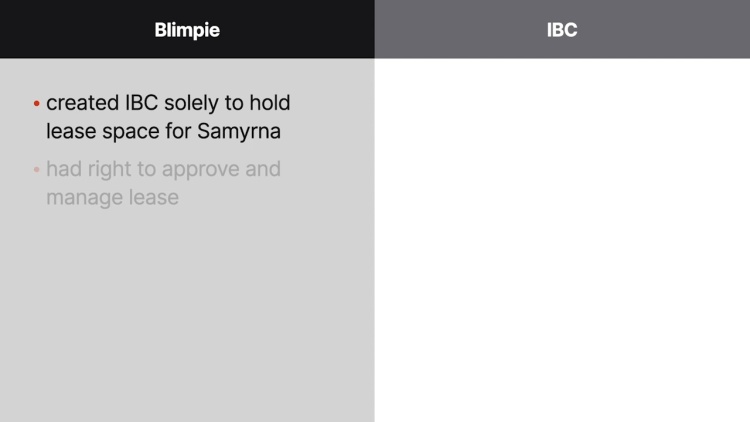OTR Associates v. IBC Services, Inc.
Superior Court of New Jersey
801 A.2d 407 (2002)
- Written by Katherine Li, JD
Facts
OTR Associates (OTR) (plaintiff) owns a shopping mall in New Jersey. It leased space to Samyrna, Inc. (the franchisee), a franchisee of International Blimpie Corporaiton (Blimpie) (defendant). Blimpie wholly owned a subsidiary named IBC Services, Inc. (IBC) (defendant). IBC was created for the sole purpose of holding the lease for the space occupied by the franchisee. IBC had no assets except the lease and no income except the rent payments by the franchisee. IBC did not have its own business place and employees, and Blimpie retained the right to approve and manage the lease. The transaction happened in this way: IBC entered into the lease with OTR, and then with OTR's consent, IBC subleased the space to the franchisee. OTR’s partners believed that they were dealing with Blimpie instead of IBC and did not discover the separate corporate entities until after the eviction. The persons who approached OTR and asked to rent space in the mall were wearing Blimpie uniforms, the tenant identified in the lease was “IBC Services, Inc. having an address at c/o International Blimpie Corporation, 1414 Avenue of the Americas, New York, New York,” and the letters sent to OTR bore the Blimpie logo. Later, the lease was terminated due to continued late payment of rent. OTR sued Blimpie for unpaid rent in the amount of $150,000. The trial court found for OTR. Blimpie appealed.
Rule of Law
Issue
Holding and Reasoning (Pressler, J.)
What to do next…
Here's why 905,000 law students have relied on our case briefs:
- Written by law professors and practitioners, not other law students. 47,100 briefs, keyed to 995 casebooks. Top-notch customer support.
- The right amount of information, includes the facts, issues, rule of law, holding and reasoning, and any concurrences and dissents.
- Access in your classes, works on your mobile and tablet. Massive library of related video lessons and high quality multiple-choice questions.
- Easy to use, uniform format for every case brief. Written in plain English, not in legalese. Our briefs summarize and simplify; they don’t just repeat the court’s language.





